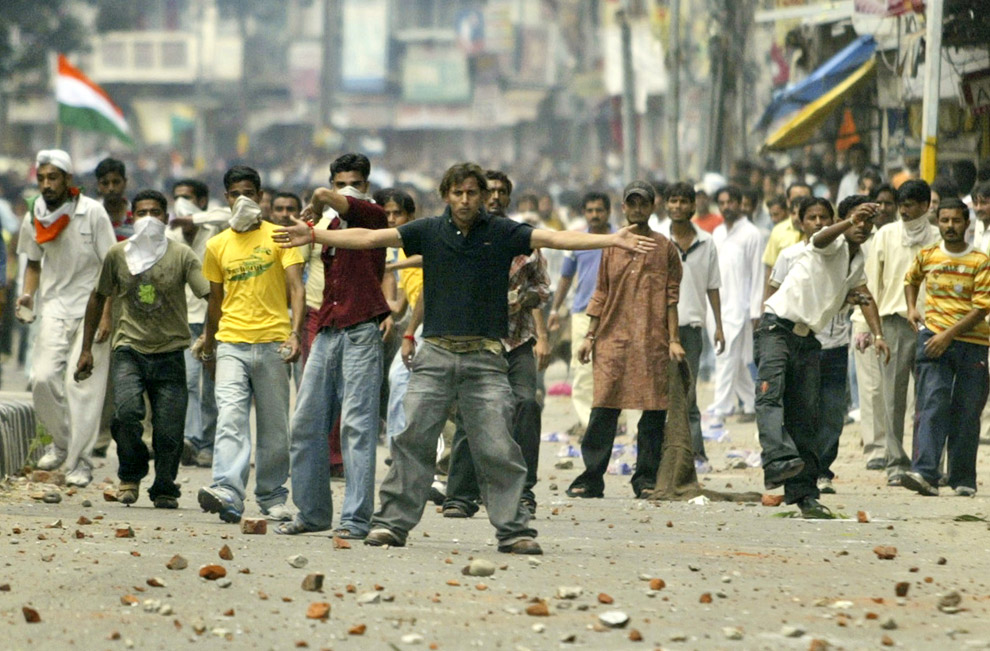
You find me sitting in my room, having snuck back from the stacks, toasty warm, tea in hand, raring to write. The more observant reader of this flawed blog will notice a gaping hole in the chronicle of Nellis in America: my trip to Chicago and St Louis. I owe you a report, no question, but the energy to start up on some sustained narrative eludes me. I'd rather peddle tidbits, if you don't mind. Easier and more fun.
Two things - people, character portraits - to begin. I was at a lecture given by John Major last week. The topic was totally exiguous - "Changes in the Modern World", I think was the title. Probably the same after-dinner speech he's be trotting out since 1997. For all that, it was masterfully done. Witty one-liners abounded. Like Major asks Yeltsin in the mid-1990s, "Tell me Boris, describe to me in one word the present condition of Russia." "Good," Yeltsin replies. Major, surprised by this answer, adds, "Well, okay then, in two words." Yeltsin ponders. "Not good."
Funny, eh? And you thought Major was boring!
I went up to natter with him at the reception for a few minutes after. All standard stuff: China, Wikileaks, labor laws. In approaching him, I had, naturally, only one topic of conversation I wished to pursue: EDWINA. Sadly the heart of an Englishman beats within me; I refrained from discussing what every single British person in the room was thinking, straining, begging, nay gagging to ask. My reticence at that critical moment is something I'll regret for the rest of my days.
What seemed to me a hilarious twist at the start of the proceedings wasn't picked up on by the crowd, and American friends seemed nonplussed when I relayed the anecdote to them later. But anyway, Major was introduced by Ernesto Zedillo, former president of Mexico (the last under the PRI regime), who now works in the Yale Business and Econ departments. Zedillo, in welcoming Major (or "Maior", to be faithful to the original pronunciation), officially presented him as the former prime minister of... England and, wait for it, Northern Ireland!!!! Faux pas, historical hatchet job, diplomatic incident - all accomplished in that one phrase! Amazing! On a serious note, it does appear to be empirically true that Americans, for whatever reason, don't recognize the Act of Union. (Cameron should bring this up next time he's in Washington.) I've even fallen into the habit of simply saying I'm from England.
Post-Major, work. Until Wednesday, when, walking along Wall Street (New Haven's Wall Street, that is, not the evil one), I bumped into none other than my old music professor, Robin Holloway. Robin's a very well-known composer and music commentator in Britain, in addition to being professor at Cambridge. He'd been invited to Yale to give a pre-concert talk at the Center for British Art, followed by a performance of his Gilded Goldbergs for two pianos. I rocked up to the concert. Robin and I met the next morning. I gave him a tour of the university. He's always a delight to be around. Truly the most knowledgeable person about music I have ever met, with a brilliantly florid, expressive manner of speaking. Perfectly inimitable. It was an unexpected joy, then, to have him here for a day or two.
From the exuberance mingled with coy calm of Goldbergs a la Holloway, I was plunged last night into the deathly world of a miserable new play at the Yale Rep - Bosso Nova. It was meant as an exploration of race, money and freedom, quintessential and weighty American themes to be sure, but too rapidly degenerated into Lear-like hell, and stayed there. For two hours. Unpleasant to watch and unedifying. Fun party after, with mainly English Lit grads in University Towers. House parties really do rule.
For those who may be a touch interested in my working life (though heaven knows why you would be), here's a short "interview" I ran off recently. Not an academic contribution, just a summary of current affairs for a French think tank a friend asked me to produce.
Orwell (whom I've been re-reading, having scarcely looked over a word since high school) once worked in a second-hand bookshop, don't you know. An essay about how and why he lost his love of books while gainfully employed there.
It also turns out that Wallace Stevens composed a long poem about my adopted city. Coming pretty late in Stevens's career, "An Ordinary Evening in New Haven" is a barren poem - basically musing on whether or not poetry can do away with imagery so as to communicate base ideas in raw form. The New Haven part is inconsequential, I discovered. Still, it exists. You might be intrigued.
I'm zonked now, so good night.











